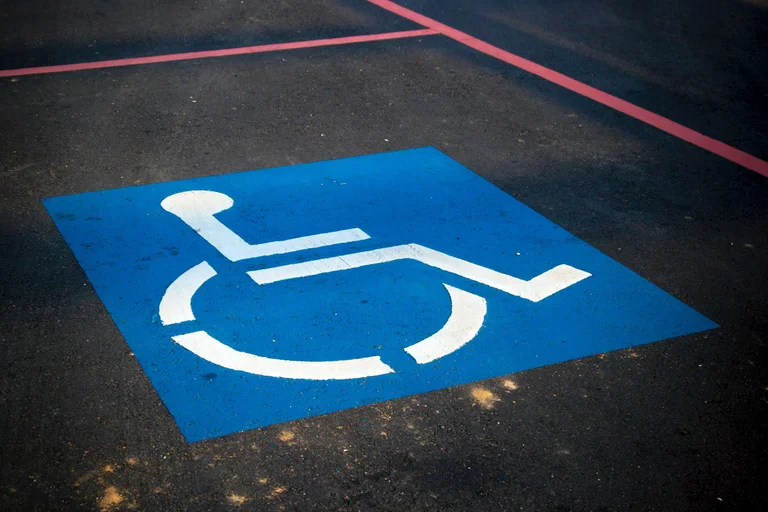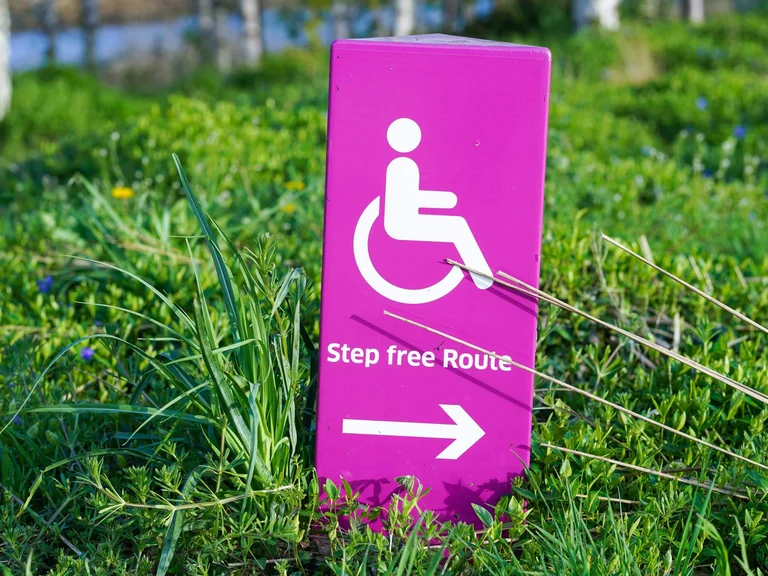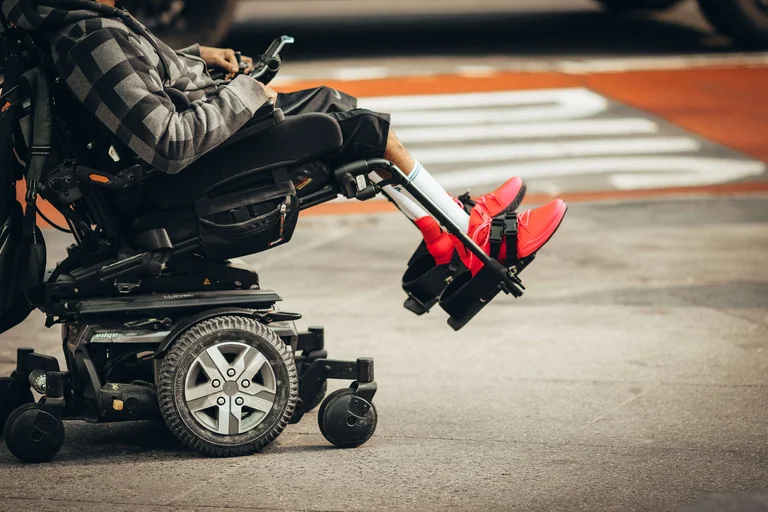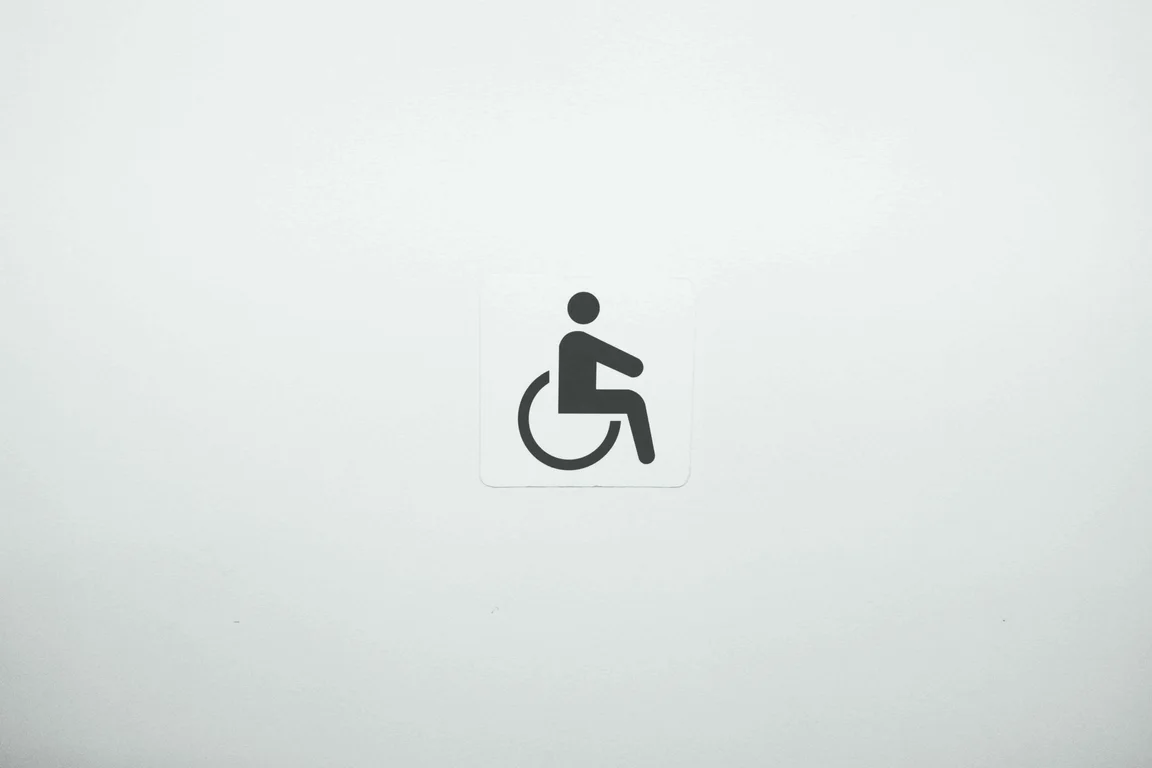Your Essential Venue Accessibility Checklist
Transport Links
Ideally your chosen venue should be within easy access of public transport links or there should be connecting transport that is accessible by wheelchair users. This is important because they need to be able to get to your event easily if they’re arriving by public transport.
Together with your chosen venue you could arrange for connecting transport such as a shuttle bus or a taxi service that is accessible for wheelchair users.
Parking
Guests with additional needs must be kept in mind when looking at the parking structure of your venue.
To be accessible, venues must have designated accessible parking spaces that have clear signage.

Entrance
Guests with disabilities need to be able to access the venue, can disabled guests enter the venue the same way as other visitors? If not, is there an alternative entrance that is accessible?
If you have concerns, ask your venue to help with ways to make the entrance more accessible such as a ramp for wheelchair users to use.
Venue Reception
Be conscious of the welcome experience that your guests receive. If your reception desk is high for people in wheelchairs, think about offering an alternative desk?
Toilets
It’s important that your venue has accessible toilets for guests with disabilities. Check out your venue’s site map to see where disabled facilities are located and how they can be accessed from meeting rooms.
Lifts
If the venue you’ve chosen has lifts, there are a few things you can check to ensure they are even more user-friendly:
Are the lift doors wide enough for a wheelchair?
Will the lift be big enough for a large wheelchair and at least one other person?
Are the lift’s buttons at a suitable height for wheelchair users and do the buttons have Braille?
Does the lift give audio floor indications?
Is there only one lift? If so, what happens if one of them is out of service?
Rooms
Main conference and meeting rooms should be as accessible as possible. If important rooms are through several doors or down narrow corridors, this can have an effect on its accessibility and can make it difficult for some guests to navigate.
When laying out the room, make sure that there’s enough space between aisles in your conference room(s) to allow for an easy entrance and exit for any wheelchair users.

Lighting
The lighting in your venue should accommodate anybody with visual impairment.
To accommodate guests with visual impairments ensure you have considered the lighting they may need and be aware of any guests that rely on interpreters and lip readers so you can make sure that they can see them well enough.
Any transitions from dark to light need to be a gradual process. It is also a requirement that you should have warnings ahead of time for any flickering lights, strobe lighting and flash photography for anyone that has epilepsy.
Sound
Sound is an important factor in any venue accessibility checklist. There are many factors that should be considered when it comes to the sound you use.
Examples of this include:
Make sure the sound in all rooms is a good volume
Are there induction loops in all the rooms to aid the hearing of anyone with hearing aids?
Are there any echoes in the room? Echoes can cause problems for people with hearing impairments
Catering
If catering facilities are needed, are those facilities accessible for everyone?
Ask your venue to show you the visitor flow in their dining facilities.. It’s vital to check if there is sufficient space between tables for wheelchair users to move around and tables should also be a suitable height for them.

Dietary Requirements
Dietary requirements go hand in hand with a good catering experience. The food you provide your guests should cater for a range of different diets and allergies.
Foods should be clearly labelled with allergen information and there should be vegetarian and vegan options available so that all guests have the choice of something to eat.
Fire Exits
Having accessible fire exits is a priority on any venue accessibility checklist. It’s essential that fire exits can be accessed by everyone, including wheelchair users. There should be a procedure in place for evacuating any guests that have mobility impairments and your venue will be able to talk you through this.
Fire alarms should be visible and audible to everyone and all delegates should be made aware of where the fire exits are located should they need to evacuate.
Guide/Service Dogs
If your venue allows guide dogs and service dogs in the venue, the dogs also need to be catered for. They need to have access to water and open space, so this must be considered.
Make Venues & The Disability Confident Scheme
Earlier this year, at Make Venues we announced our attainment of the government’s ‘Disability Confident’ accreditation where businesses are recognised for their long-term commitments to inclusivity.

The accreditation recognises businesses that take steps to make their workforce more inclusive, by making it easier for those with disabilities to both join and thrive at the company.
We aim for our team to be reflective of the diversity of delegates we welcome, which we hope adds to the hospitable environment we create and our award-winning customer service.
Looking for an Accessible Venue to Host Your Next Event?
At Make Venues we’re committed to accessibility in our venues, we’re ambitious about our approach and we’re continually adapting wherever we can. Our venues across Leamington Spa, Central London and Bristol have a huge focus on the venue accessibility checklist mentioned above, so you can be assured that accessibility is at the core of our operations.
If you have any questions about accessibility at any of our venues or you’re looking to enquire, please get in touch.
